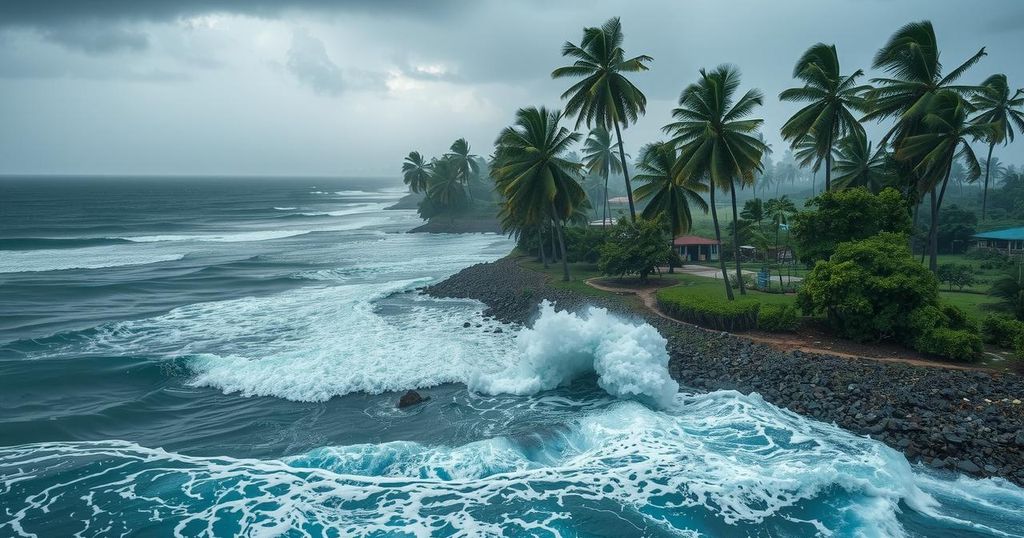World news
AC, ACACIO TEMBE, AFRICA, CAN, CANJAR AMADE, DEATH TOLL, DISASTER MANAGEMENT AGENCY, EMERGENCY RESPONSE, LUISA MEQUE, MALAWI, MAYOTTE, MECUFI, MOZAMBIQUE, NATIONAL INSTITUTE FOR DISASTER RISK MANAGEMENT AND REDUCTION, NATIONAL WEATHER AGENCY, NATURAL DISASTER, NATURAL DISASTERS, NIASSA, PEMBA, VOA, WHATSAPP
Jamal Robinson
0 Comments
Cyclone Chido Devastates Mozambique, Claiming Lives and Causing Extensive Damage
Cyclone Chido has claimed at least 34 lives and injured 43 in Mozambique, severely impacting 2.5 million people, particularly in Cabo Delgado province. The cyclone caused widespread destruction, with entire neighborhoods flattened, particularly in Mecufi district. Continued severe weather is expected as remnants of the cyclone linger, while experts warn of worsening climate conditions in the future.
Cyclone Chido struck Mozambique’s northern provinces over the weekend, resulting in a tragic toll of at least 34 fatalities and 43 injuries. As of late Monday, Luisa Meque, the chair of Mozambique’s National Institute for Disaster Risk Management and Reduction, reported that approximately 2.5 million individuals were affected by the disaster. The cyclone primarily devastated Cabo Delgado province, including significant damage to districts such as the capital city, Pemba. Reports indicate that the area experienced near-total destruction, with 100% of homes damaged in Mecufi district, where the cyclone initially made landfall. Survivors have shared harrowing experiences, including one victim who described the cyclone uprooting his residence overnight. Meteorologist Acacio Tembe noted that Niassa and Cabo Delgado provinces continue to endure severe weather conditions due to the cyclone remnants, including heavy rains and winds. The cyclone’s impact was not confined to Mozambique as it also affected Malawi and the island of Mayotte, with expectations that it will dissipate near Zimbabwe by late Tuesday. Mozambique, frequently impacted by climate-related disasters, faces an increased risk of severe weather events, including cyclones and floods, particularly during the rainy season from October to April. Experts forecast that the potential La Nina phenomenon may exacerbate the intensity and frequency of such occurrences in the Indian Ocean region, with areas currently experiencing drought also at risk for flooding in the future.
Mozambique is a nation significantly affected by climate change, often experiencing cyclical natural disasters such as tropical cyclones and floods especially during the rainy season. Cyclone Chido serves as a recent example of this ongoing environmental challenge. The country’s strategic position along the coast makes it particularly vulnerable to the impacts of severe weather systems originating from the Indian Ocean. With a history of climatic instability, Mozambique is in a continual state of preparation and response to these devastating weather events, underscoring the need for improved disaster risk management.
Cyclone Chido’s devastating impact on Mozambique has resulted in significant loss of life and widespread destruction, highlighting the country’s vulnerability to climate change and severe weather events. As recovery efforts begin, the scope of the disaster continues to unfold with millions affected. The potential for increased weather intensity as predicted by experts necessitates urgent attention to disaster preparedness and climate resilience in Mozambique and the wider southern Africa region.
Original Source: www.voanews.com




Post Comment